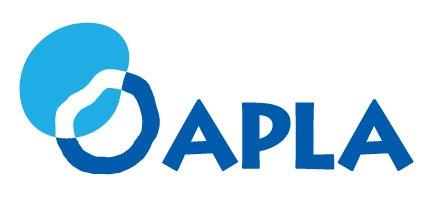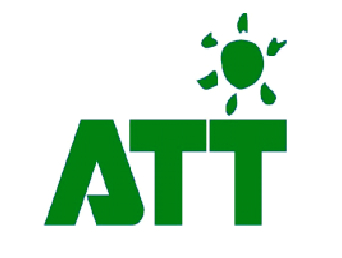Asian People’s Fund for Mutual Benefit Articles of Association
Chapter One: General Provisions
(Name) Article 1
This organization shall be known as General Incorporated Association, Asian People’s Fund for Mutual Benefit.
(Purpose) Article 2
- The purpose of the organization is to provide support for the people of Asia and neighboring areas (“target areas”) to become self-reliant.
- To achieve the goal above, the organization shall carry out the following activities:
- Exchange information to strengthen interaction and solidarity between farmers/producers and urban dwellers in target areas.
- Develop human resources for projects supporting self-reliance for people in target areas.
- Support the creation of mutual aid groups and cooperative associations for farmers/producers in target areas.
- Run financial activities to support People to People Trade activities in target areas.
(Location of Principal Office) Article 3
The organization’s principal office shall be located at 2-4-15 Okubo, Shinjuku-ku, Tokyo.
(Method of Public Notice) Article 4
Official announcements of the organization shall be published by posting them on the principal office’s notice board.
(Organization) Article 5
In addition to the organs of a General Assembly and Directors, the organization shall have a Board of Directors and Auditors.
Chapter Two: Members and Affiliates
(Qualifications for Becoming Members or Affiliates) Article 6
- The organization shall be comprised of members and affiliates.
- Members, being those below, shall be so in accordance with Article 11(1)(5) of the Act on General Incorporated Associations and General Incorporated Foundations (“Act on General Incorporated Associations”).
- Consumer’s Cooperative Unions and Consumer’s Cooperatives and citizen’s business entities that work in target areas and endorse the organization’s goals.
- Corporations and organizations engaged in People to People Trade activities that work in target areas and endorse the organization’s goals.
- Nongovernmental organizations that work in target areas and endorse the organization’s goals.
- Affiliates are individuals who work in target areas and endorse the organization’s goals and groups other than those under 2 above.
(Joining the Organization) Article 7
Once the organization is established, to become a member or affiliate, an official membership application must be submitted for the approval of the Board of Directors.
(Duty to Pay Expenses) Article 8
Members and affiliates must pay membership dues, the amount of which shall be determined by the General Assembly. The membership dues referred to herein shall be expenses as stipulated under Article 27 of the Act on General Incorporated Associations.
(List of Members) Article 9
- The organization shall make a list of members and affiliates stipulating their names and addresses, which will be kept at the organization’s principal office. This list shall be that as required under Article 31 of the Act on General Incorporated Associations.
- Notices or peremptory notice from the organization to its members and affiliates shall be sent to the addresses recorded in the list of members and affiliates or those that members or affiliates have informed the organization of.
(Leaving the Organization) Article 10
- Members and affiliates shall leave the organization in the following circumstances:
- Application by member or affiliate to leave organization. This shall be submitted one month in advance, but if there is compelling reason, the member or affiliate may leave organization at any time.
- Death or dissolution
- Assent of all members
- Expulsion
- The expulsion of a member or affiliate shall only take place if there is due cause and can be decided upon by the General Assembly. In such a case, Articles 30 and 49(2)(1) of the Act on General Incorporated Associations shall apply.
Chapter Three: General Assembly
(Convocation) Article 11
- The organization’s Regular General Assembly shall be convened within three months after the day following the end of each fiscal year and an Extraordinary General Assembly shall be convened as the need arises.
- Unless otherwise specified by law, the General Assembly shall be convened by the Executive Director based on a resolution of the Board of Directors. If the Executive Director is involved in an accident or other trouble, he or she must get approval from the Board of Directors in advance for the Vice Executive Director to convene the General Assembly, in compliance with the prescribed rank order.
- Members must be given notice at least one week before the day of the event.
(Bypassing Convocation Formalities) Article 12
If all members are in unanimous agreement the General Assembly can be convened without the said formalities.
(Chairperson) Article 13
The Executive Director shall chair the General Assembly. If, however, the Executive Director is involved in an accident or other trouble, he or she must get approval from the Board of Directors in advance for the Vice Executive Director to take on this role, in compliance with the prescribed rank order.
(Matters to be Resolved at General Assembly) Article 14
In addition to matters stipulated in this document, the following items must be decided on by the General Assembly:
- Changes to the Articles of Association
- Dissolution or merger
- Settlement of accounts
- Expulsion of a member or affiliate
- Other matters as necessary
(Voting Method) Article 15
Unless otherwise prescribed by law, a decision of the General Assembly shall be passed if it receives a majority of the vote at a General Assembly attended by the majority of members with voting rights.
(Bypassing Resolution by General Assembly) Article 16
If a Director or member makes a proposal for the consideration of the General Assembly and all members signal their agreement to it on paper or through electronic means, the proposal shall be deemed approved by the General Assembly.
(Voting by Proxy) Article 17
A member can exercise the voting right of another member as a proxy. In such case, he or she must submit evidence of this in writing to each General Assembly.
(Minutes of General Assembly) Article 18
A record of the General Assembly shall be made in compliance with laws and regulations and shall be signed by the Chair and Directors in attendance. These records shall be kept in the organization’s principal office for a period of ten years.
Chapter Four: Directors, Auditors and Representative Directors
(Number of Directors) Article 19
The number of Directors shall be three or more with a maximum of ten.
(Qualifications for Director) Article 20
The Directors shall be elected from among those recommended by members of the organization.
(Number of Auditors) Article 21
The number of Auditors shall be one or more with a maximum of two.
(Appointment Method for Directors and Auditors) Article 22
Directors and Auditors shall be elected if they receive a majority of the vote at a General Assembly attended by the majority of members with voting rights.
(Representative Directors) Article 23
- There shall be one Executive Director, appointed by a majority of the Directors at a Board of Directors meeting.
- In addition to the preceding clause, a Vice Executive Director and Managing Directors can be appointed if the need arises.
- The Executive Director and Vice Executive Director shall be the Representative Directors of the organization under the Act on General Incorporated Associations.
- The Executive Director shall carry out general administration on behalf of the organization.
- The Vice Executive Director shall assist the Executive Director. If the Executive Director is in an accident, he or she must get approval from the Board of Directors in advance for the Vice Executive Director to act for the Executive Director and carry out the latter’s duties in his or her absence, in compliance with the prescribed rank order.
(Term of Office for Directors and Auditors) Article 24
- The term of office for Directors and Auditors shall end at the conclusion of the last Regular General Assembly held within two fiscal years since their appointment.
- In the case of Directors or Auditors appointed to replace those who have left their posts before the end of their term, their term of office shall be the same as the term remaining for the persons they replace.
- In the case of Directors added to the Board with an increase in number, their term of office shall be the same as the term remaining for other Directors at the time.
(Remuneration) Article 25
The Directors and Auditors shall not be paid remuneration.
Chapter Five: The Board of Directors
(Convocation) Article 26
- The Board of Directors Meeting shall be convened by the Executive Director, who must give notice of it to Directors and Auditors at least one week in advance. This notice period can be reduced in the case of emergency.
- If the Executive Director is involved in an accident or other trouble, he or she must get approval from the Board of Directors in advance for the Vice Executive Director to convene the meeting, in compliance with the prescribed rank order.
(Bypassing Convocation Formalities) Article 27
If all Directors and Auditors are in agreement, the Board of Directors Meeting can be convened without the said formalities.
(Chairperson) Article 28
The Chair of the Board of Directors shall be the Executive Director. If, however, the Executive Director is involved in an accident or other trouble, he or she must get approval from the Board of Directors in advance for the Vice Executive Director to take on this role, in compliance with the prescribed rank order.
(Matters for Resolution by the Board of Directors) Article 29
In addition to matters stipulated in this document, the following items must be decided on by the Board of Directors:
- Important matters related to the organization’s assets and the execution of duties
- Issues related to convening a General Assembly
- Establishing, changing and abolishing rules related to the organization’s assets and the execution of duties
- In addition to the above, anything deemed necessary by the Board of Directors
(Resolutions of the Board of Directors) Article 30
A resolution of the Board of Directors is passed if a majority of Directors who are entitled to participate in the vote are present and a majority vote in its favor.
(Bypassing Resolution by the Board of Directors) Article 31
If a Director makes a proposal for the consideration of the Board of Directors and all Directors who are entitled to participate in the vote signal their agreement on paper or through electronic means, unless an Auditor objects to the proposal, the proposal shall be deemed approved by the Board of Directors.
(Report on Execution of Duties) Article 32
The Executive Director and Vice Executive Director shall report to the Board of
Directors on the execution of his or her duties at least twice every fiscal year with an interval of at least four months in between reports.
(Minutes of Board of Directors Meeting) Article 33
A record of the Board of Directors Meeting shall be made in compliance with laws and regulations and signed by Directors and Auditors in attendance. These records shall be kept in the organization’s principal office for a period of ten years.
Chapter 6: Accounts
(Fiscal Year) Article 34
The organization’s fiscal year shall be from August 1 to July 31 the following year.
(Submission of Financial Report etc. to the Regular General Assembly) Article 35
- Each fiscal year, the Executive Director must submit to the Regular General Assembly a Financial Report (balance sheet and income statement) and Activity Report that have been audited under Article 124(1) of the Act on General Incorporated Associations and approved of by the Board of Directors under Article 3 of the Act.
- In the case of the above, the Financial Report must be approved by the General Assembly and the Directors must present the content of the Activity Report to the
Regular General Assembly.
(Keeping Financial Reports, etc.) Article 36
The organization must keep each fiscal year’s balance sheet, income statement and
activity report, as well as other related documents (including audit reports), in its principal office for a period of five years from two weeks before the Regular General Assembly.
(Allocation of Surplus Funds) Article 37
This organization shall not allocate surplus funds.
Chapter 7: Dissolution and Settlement
(Reason for Dissolutions) Article 38
The organization may be dissolved in the following circumstances:
- Resolution of the General Assembly
- Lack of members
- Merger (if the organization will cease to exist as a result)
- Decision to begin bankruptcy proceedings
- Court order of dissolution
(Disposal of Remaining Assets) Article 39
If there are assets remaining in the case of the organization dissolving, by resolution of the General Assembly, they shall be donated to an organization or national or local public entity stipulated under Article 5(17) of the Act on Authorization of Public Interest Incorporated Associations and Public Interest Incorporated Foundations.
Chapter 8: Supplementary Provisions
(Name and Address of Founding Members) Article 40
The names of the Founding Members are as follow:
Alternative People’s Linkage in Asia (APLA)
Alter Trade Japan, Inc. (ATJ)
Consumer’s Cooperative Union KIRARI
Consumers Union of Japan
DAICHI WO MAMORU KAI
Dure Consumer’s Cooperative Union
Green Coop Consumers’ Cooperative Union
Hansalim
Japan Fiber-Recycle Solidarity Association
Niigata Prefectural Multi-Purpose Consumer’s Cooperative
Palsystem Consumer’s Cooperative Union
Seikatsu Club Consume’s Cooperative Union
(Officers at Time of Founding) Article 41
The Founding Directors, Auditors and Representative Directors are as follow:
Founding Directors:
Kazuyoshi FUJITA
Naoe AKIYAMA
Masahiko HOTTA
Koichi KATO
KIM Yeong-ju
Norma G. MUGAR
Park Jae-Il
Yuko TANAKA
Shiro WAKAMORI
Yoshiharu YUKIOKA
Founding Auditors
Manabu SUMIDA
Yoko TOMIYAMA
Founding Representative Director:
Kazuyoshi Fujita
(First Fiscal Year) Article 42
The first fiscal year for this organization shall begin on the day it is founded and end on
July 31, 2010.
(Matters not Stipulated in this Document) Article 43
All matters not stipulated in the Articles of Association shall be determined according to the Act on General Incorporated Associations and other laws and regulations.


















